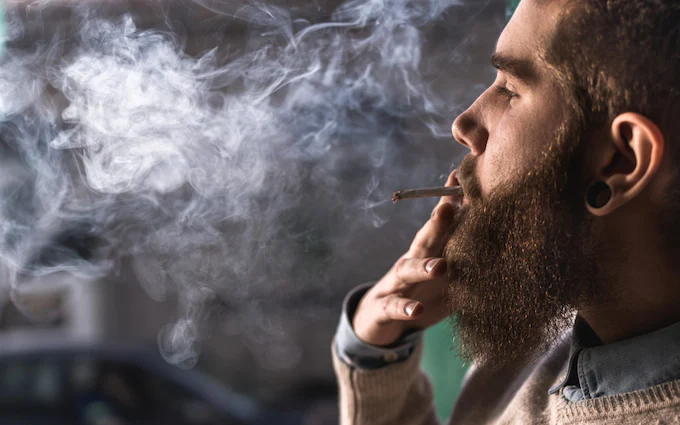Navigating the Legality of Medical Marijuana Consumption in Virginia
Introduction:
With the legalization of medical marijuana in Virginia, individuals seeking relief from various medical conditions now have access to this alternative treatment option. However, understanding where and how one can legally consume medical marijuana in the state is crucial for patients and caregivers alike. In this blog, we’ll delve into the regulations surrounding medical marijuana consumption in Virginia and explore the designated locations where patients can access and use this treatment.
Understanding Virginia’s Medical Marijuana Laws:
In 2020, Virginia took a significant step forward by legalizing the use of medical marijuana for qualifying patients. The Virginia Board of Pharmacy oversees the state’s medical cannabis program, which allows patients with debilitating medical conditions to access medical marijuana as a form of treatment.
To qualify for the program, patients must be evaluated by a qualified medical practitioner and found to have a condition that could benefit from cannabis therapy. The list of qualifying conditions is extensive. Here are some examples of diagnoses that will qualify:
Cancer
Glaucoma
Human Immunodeficiency Virus (HIV)
Acquired Immunodeficiency Syndrome (AIDS)
Hepatitis C
Amyotrophic Lateral Sclerosis (ALS)
Crohn’s Disease
Parkinson’s Disease
Multiple Sclerosis (MS)
Additionally, patients with any other condition for which a doctor believes medical marijuana may be beneficial can also apply for the program. Once approved, patients receive a written certification from a registered practitioner, allowing them to purchase medical marijuana from licensed dispensaries in the state.
Where Can You Legally Consume Medical Marijuana in Virginia?
Despite the legalization of medical marijuana, Virginia’s laws place restrictions on where patients can consume this treatment. Unlike some states with recreational cannabis laws, Virginia does not permit the consumption of medical marijuana in public places.
Patients are limited to consuming medical marijuana in private settings, such as their homes. This restriction aims to prevent public consumption and maintain a level of discretion for patients who may prefer to keep their treatment private. With this restriction comes a need to abide by the wishes of those around you. Act responsibly and you will keep peace with those around you and stay within the law.
However, for patients residing in assisted living facilities or nursing homes, the rules regarding medical marijuana consumption may vary. Patients and caregivers in these settings need to consult with facility administrators and legal experts to ensure compliance with state regulations.
Navigating Dispensaries and Designated Consumption Areas:
In Virginia, medical marijuana is only available for purchase at licensed dispensaries authorized by the Virginia Board of Pharmacy. These dispensaries are strategically located across the state to ensure accessibility for registered patients.
When visiting a dispensary, patients must present their written certification from a registered practitioner and a valid government-issued ID to verify their identity and age. Dispensary staff are trained to provide guidance on product selection, dosing, and consumption methods based on each patient’s specific needs and preferences.
Some dispensaries may also offer designated consumption areas where patients can safely and legally consume medical marijuana on-site. These areas are designed to provide a comfortable and discreet environment for patients who may not have suitable private spaces for consumption at home.
Additionally, some dispensaries may offer educational resources and support services to help patients better understand their treatment options and maximize the benefits of medical marijuana.
Transporting Medical Marijuana in Virginia:
Another important aspect of consuming medical marijuana in Virginia is understanding the rules and regulations regarding transportation. Patients are permitted to transport medical marijuana in their vehicles but must adhere to certain guidelines to avoid legal consequences.
Medical marijuana must be kept in its original packaging and stored in the trunk or a locked glove compartment while in transit. It’s crucial to ensure that medical marijuana products are not accessible to drivers or passengers during transport to comply with state laws and prioritize safety on the road.
Patients should also carry their written certification from a registered practitioner while transporting medical marijuana to provide proof of legal possession if requested by law enforcement officials.
Conclusion:
As medical marijuana becomes more widely accepted as a treatment option, understanding the regulations surrounding its use is essential for patients, caregivers, and healthcare professionals in Virginia. While the legalization of medical marijuana offers newfound relief for individuals suffering from debilitating medical conditions, it’s crucial to navigate the state’s laws and guidelines responsibly.
By adhering to the rules outlined by the Virginia Board of Pharmacy and seeking guidance from licensed dispensaries, patients can access and consume medical marijuana safely and legally. With proper education and support, medical marijuana has the potential to improve the quality of life for countless individuals across the state.

Dr. Nicholas Marsh has been a respected board-certified anesthesiologist in Northern Virginia for over 35 years. Recognized as a top doctor by FindaTopDoc.com, his vision for providing top-quality medical services is driven by his passion for patient comfort and dignity.

